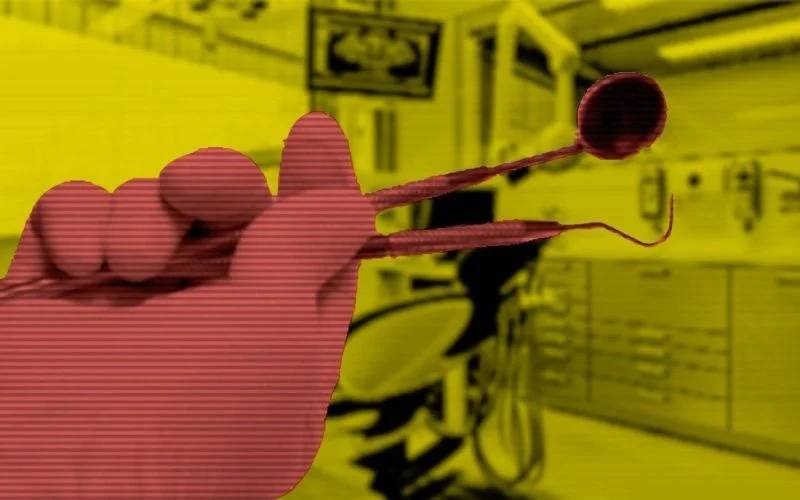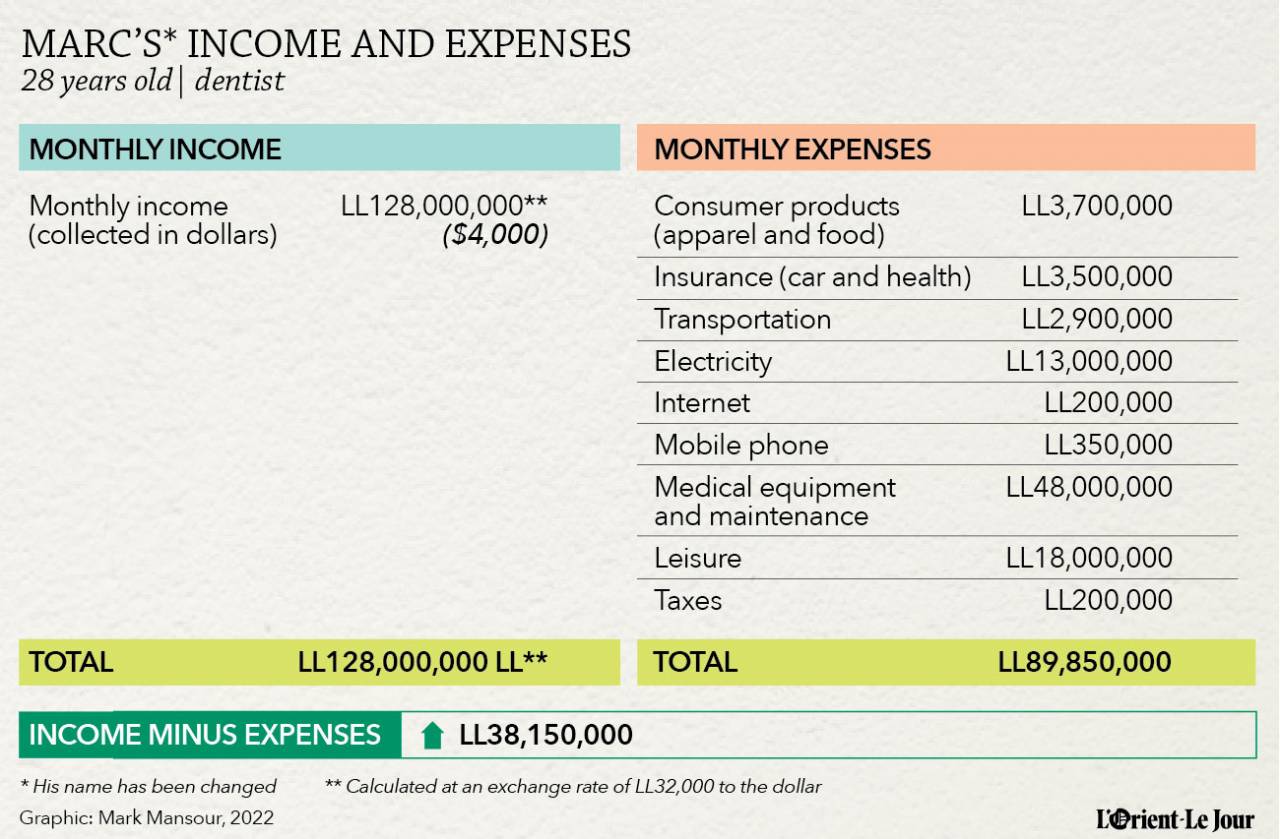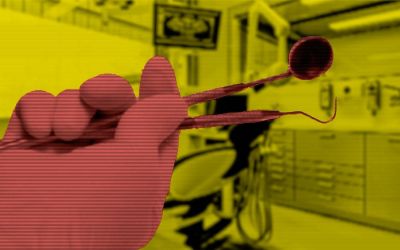
(Credit: Marc Mansour)
Marc* operates a private clinic in Zalka, north of Beirut. Daily, from 8 a.m. to 6 p.m., he welcomes a good dozen patients, attends to their teeth and tries, at the same time, to find a smile too often erased by Lebanon’s three years of financial collapse.
“‘Is it urgent? Should we pay in dollars or in Lebanese lira? Is there a cheaper alternative?’
“These questions are a leitmotif punctuating my work days, and come from both poor and formerly well-off people who have been driven below the poverty line by the crisis,” notes the 28-year-old dentist, who has been in practice for six years. While he believes he is now “more fortunate” than most Lebanese, with his monthly income having lost “only” 20 percent of its value since 2019, Marc knows that his clinic would not have lasted if he had not opened it in 2017, two years before the crisis began.
A ‘more than adequate’ income
Implants, gum grafts, scaling … Priced in dollars, the dental care he provides currently earns him $4,000 per month. This is certainly less than the $5,000 a month he used to earn before the crisis, but it is still “more than enough” to make his investment in the clinic’s equipment profitable, and he wants for nothing.
Today, Marc manages to go out twice a week to a bar, restaurant or nightclub, and even travel three times a year, with a budget equivalent to $1,500 per trip. The dentist still lives with his parents and is not put to work by them, owners of a business that is on the rise. His situation allows Marc to live well, while putting aside nearly 30 percent of his income, capital that he plans to invest in real estate.

‘A couch to talk on’
Though he lives comfortably and is already starting to save for his retirement, Marc is not unaware of the situation Lebanon is going through. Through his patients he sees the impact of the crisis every day. “Some people may envy me, but they don't know that I feel a twinge of sadness every time a patient tells me about his daily life. When you’re a dentist, you also become a confidant. The dental chair becomes a couch to talk on. To this day, the walls of my office house a thousand and one stories of disappointment,” confides the young practitioner.
“‘I skip breakfast and dinner to be able to feed my three children,’ a patient in his fifties told me one day. After losing his wife, car and teeth in an accident, he strings together two on-call shifts at a hotel so he can pay for his daughters’ schooling. “‘Without teeth, I am the laughing stock of society, but I cannot spend my savings on an implant,’ he explained, struggling to hide his shame.
“How could I remain indifferent to these cries of distress?” says Marc. “So I offered him the treatment [free of charge].”
The dentist says he is surprised that he’s been able to adjust so well professionally despite the crisis.
“So, in return, I have to be there for my patients,” he says, “adapting prices, as much as possible, to individual circumstances.”
* The first name has been changed
This article was originally published in French in L'Orient-Le Jour.
